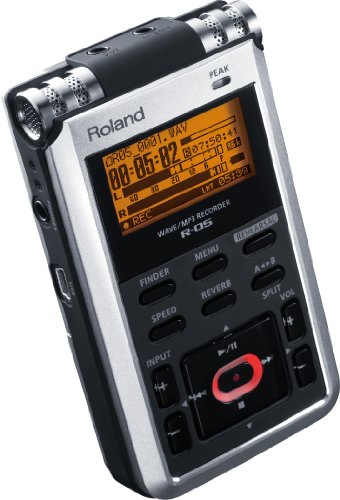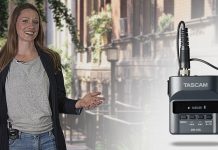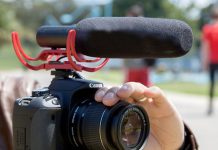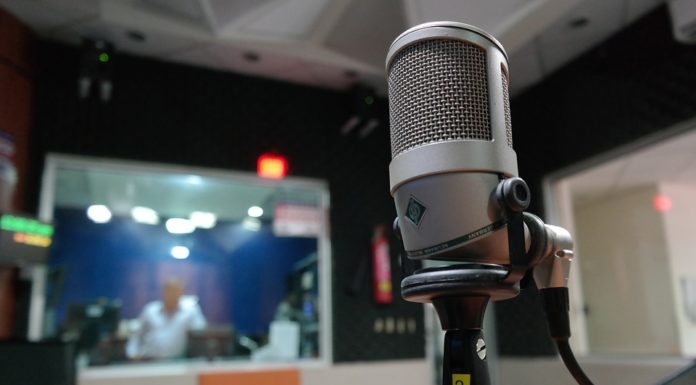If you are a musician who spends a lot of time on the go, a podcaster or a journalist who has to record a ton of sound bytes when she or he is out and about, you will need to get your hands on a good quality portable digital audio or field recorder.
While many people think that purchasing portable recording devices is somehow compromising the quality of sound, that isn’t true.
You just need to understand what are the different factors that make up a good portable audio or field recorder and you will be all set.
However, before getting to that stage, let’s look at what a portable digital audio recorder really is!
5 Best Portable Audio/Field Recorders
We’ve done our research and listed the best portable audio recorders below.
All of these would make a fantastic portable recorder to bounce tracks to from a hardware sampler, recording snippets for a podcast, taking it out into the wild and doing some field recording, or covering your butt and recording important meetings at work.
- Streamlined Body with matte finish and newly designed protective mic enclosure
- Built-in stereo condenser microphones in 90-Degree x/Y format
- One-touch button controls.Battery life (alkaline batteries): Approximately 10 hours (continuous...
- Newly Developed Crossed XY Stereo Microphone
- 24-bit/96kHz Recording
- Mic / Line Input
- Modular Mic and Input System
- Includes XY Microphone Module
- Four Simultaneous Inputs
- Direct recording to SD cards up to 128GB.Display 2.0-inch full color LCD (320 x 240 pixels)
- Gain knobs, pads, and phantom power for each input. Maximum Sound Pressure Input: 122 dB SPL
- Newly redesigned preamps with an ultra-low noise floor, up to 24-bit/96kHz audio in wav or MP3...
- High-quality stereo recording (24-bit / 96kHz) with the built-in stereo mic or external input.
- Strong, attractive metallic exterior. Music-practice features (change tempo without changing pitch,...
- Auto record start, auto song split, auto level adjust Pre Record function (captures 2 seconds of...
What Is a Portable Digital Audio Recorder?
To put it as simply as possible, a portable audio or field recorder is a small piece of equipment that you can carry around or hold in your hands while recording audio. This audio can be anything from music and sound effects to interviews, conversations, lectures and even your own thoughts.
These portable devices are different from the regular voice recorders that you have probably seen around quite often, as they allow you to record high-quality audio instead of the substandard audio that the traditional voice recorders were associated with.
Portable audio recorders are usually used by seasoned musicians or semi-professionals, as they come with a wide range of features including advanced microphones, great memory and more. While there are many different types of recorders available, people opt for portable ones because they work very well for band rehearsals or situations where you are just throwing around some ideas to keep a track of at a later time.
Many people believe that you can simply use your smart devices and applications to record sound today, but there is a huge difference in the quality when you compare the mic of your smartphone with that of a proper portable audio recorder. If you want unmatched quality, this is the right way to go forward!
Things to Consider While Choosing Your Handheld Recorder
There are many different companies that manufacture handheld or portable audio recorders, which means you may find yourself spoiled for choice when it comes to purchasing a handheld controller. Not all of these, however, may fare well enough to meet your expectations or the hype associated with them.
In such a situation, what is the best way to get your hands on the right portable audio recorder? The answer is simple. You need to give thought to each of the categories mentioned below and get the recorder that meets your individual needs.
Budget
Money is a major factor when it comes to purchasing, and equipment and portable audio recorders are not an exception to that rule.
As there are so many different audio recorders available for purchase online and in stores, you can find one that fits most people’s budget.
For example, you can get a decent portable recorder in under $100, but if you are looking for some good quality devices, you should be prepared to shell out between $100 and $200.
Usage
An important question that you need to ask yourself is what the recorder is going to be used for.
For example, are you looking to record some music or is it going to be used to track and record interviews?
If the usage is pretty basic like recording some memos for yourself or looking at recorded versions of your band rehearsals, you might not need to invest in a product that is too expensive.
However, if you are going to be using this audio in the final step of your production, you might not want to cut corners.
Usage in Terms of Tracks
Different recorders have different features and one of the most important of these is how many tracks can be recorded at a time.
If you just need to record a large piece of audio in one go, you may not need additional channels.
However, if you are looking to record simultaneously, you may have to buy one of the more sophisticated devices that give you access to multiple channels.
Polar Patterns
While purchasing audio recorders, you need to know about two main polar patterns — cardioid and omnidirectional. The first of these is shaped like a heart and captures sound from the front.
As you move away, the sound being captured is affected. An omnidirectional polar pattern, on the other hand, allows for sound to be captured from all directions.
Mic
While some recorders come with in-built microphones, you may need to attach separate, interchangeable mics to others. Look at your requirements before choosing one type!
Check out our microphone guide to get the most out of your audio recorder.
Memory
When it comes to portable audio recorders, some may accept the different types of cards like the microSD or SDHC cards, while others may not. It is important that you understand your own memory requirements and then check the internal memory of the device that you are looking to purchase. Some may have a large internal memory, while others may give you the option of extending the external memory.
You might also need to get a memory card reader for your computer if the audio recorder doesn’t have a USB connection.
Additional Features
With more and more innovation in the field of audio equipment, just manufacturing a simple portable recorder isn’t enough to grab any eyeballs. Instead, companies are adding more and more features like better screens, a number of different filters and effects, slow-mo playback and much more.
If you think you need these features, check the description of the products before purchasing!
Added Accessories
For most people, just purchasing a good quality portable audio or field recorder is not enough. You will also need to invest in a number of accessories that will help you use this recorder in the best possible way. For example, it is important that you handle the recorder with care, for which you may be required to get proper carry bags. Tripods, popper stoppers, windscreens and more are other things that can be helpful for newbies and professionals alike.
Once you have given enough thought to each of the different considerations mentioned above, you will find yourself better equipped to choose the right kind of portable audio or field recorder. If you have worked in a studio or spent any time in the industry as a professional, you already know the importance of equipment. If you are ready to splurge on the other aspects, handheld recorders and audio equipment should not be left behind!















![5 Best 61-Key MIDI Controllers [Reviews & Buyer’s Guide] Native Instruments Komplete Kontrol S61 MK2](https://homestudiohub.com/wp-content/uploads/2020/03/null-32-80x60.jpeg)

